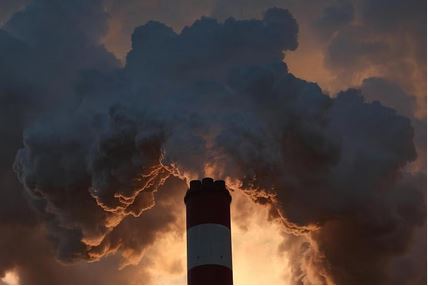
PARIS, Dec 8, 2023 (BSS/AFP) - Rich countries need to stop using coal by
2030 and oil and gas by 2040, with poorer nations following a decade behind, to
give the world a chance of limiting warming to 1.5C, climate scientists told
the UN Friday.
In a note to the UN Secretary-General Antonio Guterres and UN Climate
Change body, shared with AFP, climate scientists from the Potsdam Institute for
Climate Impact Research (PIK) and Exeter University said there was very little
room for anything but a total phase-out of fossil fuels.
The steep timeline they laid out comes as climate negotiators at the COP28
talks in Dubai are tussling over the future of oil, gas and coal, responsible
for the lion's share of humanity's planet-heating emissions.
The UN climate negotiations are tasked with helping the world meet the
Paris deal goal of limiting global warming to 1.5 degrees Celsius from
pre-industrial levels, but have often been vague on how that target will be
achieved.
PIK director Johan Rockstrom said that the new calculations sent to the UN
show the world unwinding fossil fuel use at a speed and scale that makes
debates at COP28 about decarbonising by 2050 or a gradual "phasedown" plan
beside the point.
"The discussions should be around serious and fair efforts to start
implementing a phase out plan," he said.
The note to Guterres uses estimates of the amount of carbon dioxide that
the world can pump into the atmosphere and still limit warming to 1.5C from the
UN's IPCC climate panel.
The scientists calculate the implications for oil and gas, if wealthy
Organization for Economic Cooperation and Development (OECD) countries can
phase out coal by 2030, followed by the rest of the world in 2040.
They found rich nations would need to stop using oil and gas by 2040, which
would give other countries until 2050.
But even that challenging timeline could be too optimistic, the scientists
said.
Using more recent studies suggesting a much-reduced carbon budget implied a
phasing out of all fossil fuels in rich countries as early as 2030 -- and
everywhere else by 2040.
- Emissions cut 'ASAP' -
Negotiators at COP28 are sparring over language on fossil fuels in a draft
deal that would be a landmark achievement -- if it survives to a final text.
The draft has a 2030 target for the "rapid phase out of unabated coal
power" -- meaning without technology to capture emissions.
It recognises the IPCC has suggested a 75 percent reduction in use from
2019 levels by 2030.
On fossil fuels in general, there are several options including a phase-out
"in line with best available science".
The International Energy Agency's recent net zero report called on wealthy
countries to bring forward their decarbonisation plans to 2045, with China
hitting the target in 2050, giving developing countries longer to slash
emissions.
Rockstrom and co-author Pierre Friedlingstein of Exeter University said
what their note and the IPCC and IEA scenarios shows is that global emissions
need to decline by around seven percent a year, with an ultimate goal of
halving them by 2030.
"The global curve of emissions needs to bend ASAP," they said in a
statement.